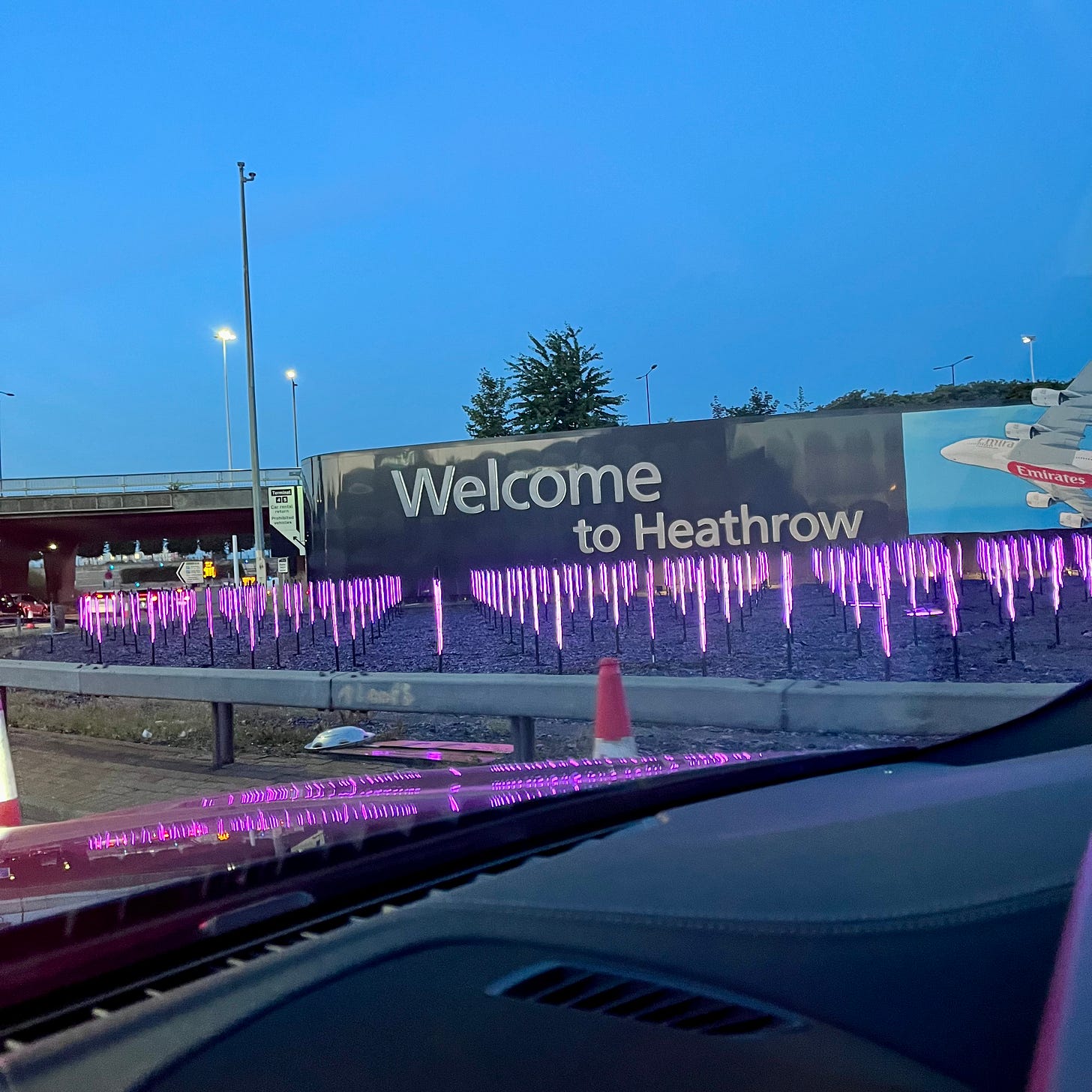Hard truths I wish I knew before studying in the US (mindset)
Part 3: Mindset

I have been studying in the US for 4 years now, and I've made some mistakes along the way.
So I sat down to reflect on what I wish I knew before coming to the US. With them, I could have gotten the best US opportunities without making many mistakes.
After thinking about it, I wrote out 50 points divided into five parts:
Scholarship
Visa
Mindset
Money
Lifestyle
We have covered Part 1 (Scholarships) and Part 2 (Visa approvals)
Today, let's talk about the right mindset to succeed here:
1: Anything you don’t understand, ask!!
Especially if it seems too good to be true.
The US prioritizes human life, and they want you to be comfortable first, then worry about the bills later.
It's the other way around for us in Africa. We ask for money first before providing you with the service, even in hospitals.
You might fall ill, and they ask if you would like them to send over an ambulance to pick you up. Then you think, aww, that's so generous of them. And you respond, "Yes".
The person might now add, we'll add a police car to it to ensure you are well protected and get to the hospital early. And then you say, "Okay".
Make sure you enjoy your time in that ambulance because after 3 weeks, you'll get a bill of $2000 in your mail. Those things don't come cheap.
Whenever you receive an offer, especially in the hospital, it's a good idea to ask about the financial implications.
This point doesn't cover genuine emergencies, which are very few, honestly. You can drive yourself to the hospital or ask a friend to do so.
2: Renew your visa.
We all know how tough it is to get a US visa
So when students come here, the mindset is, "I'm not leaving till I get my green card". And this is born of fear and lack of information.
Make sure you verify everything you hear. Remember, ask questions.
Your visa is a travel document. You need it to travel and experience new cultures in other countries.
If you are going for OPT, renew your visa.
If you are going for a PhD after your masters, renew your visa.
If you are still a student and your visa is about to expire, renew it.
You don't have to return to your country to renew. You can go to one of the North American countries. Some options are Canada, the Dominican Republic, Jamaica, or the Bahamas.
I renewed mine in the UK.
3: Welcome to the independent life.
The US runs an independent culture.
This transition is difficult for a lot of Africans because we have a communal culture. You can live in a house for 2 years here, and you won't know your neighbors.
You have to be ready to do things yourself. If you don't, you will spend a lot of money.
A good example of this is when you're moving to a new house.
I rent a U-Haul truck for $30, then dismantle all I have in the house. Get a few friends to help me load the truck. Then I drove the truck myself to the new house, and we offloaded it there again.
You can either do that or pay two men and a truck about $100 per hour to help you move.
You must always think of the cheapest and best way to solve any problem yourself.
4: Your perspective about life will change.
One of the beautiful things about traveling is that your mindset will grow.
You might have lived in just your city or country all your life. When you move to a new country, you will learn a lot of new things and question what you previously thought were true.
When I just arrived for my Master's, I was so surprised at the hospitality I received. The Bowling Green community was really generous.
We had "campus restore", where you can shop for free clothes, shoes, and house supplies.
Some churches organized house furniture pantries to get beds, couches, dining tables, etc.
Almost every week, there was an organization hosting a food pantry. (Sharing groceries and food stuffs for free)
I was blown away at this level of generosity, and my willingness to give has increased as a result. This is one of the reasons for this free newsletter.
5: Do projects in class and display your work publicly.
Employers want to know about what you can do. Not your degrees.
The beautiful things about several courses here is that you get to do class projects. A big mistake I see is that several students shy away from it because it is "work". This same work will open doors for you in the future.
A friend of mine got her Data Analyst job 2 months after graduation, just because of this. She had done some wonderful projects on Tableau and displayed them online.
Any interview she had, she always showed her work. Her results opened doors for her.
You can post your work on LinkedIn. You don't know who is reading.
If you write code, you can post on GitHub. This is how my GitHub looks now, mainly from class projects.
If you have interesting projects in your field already, you can start showing them off before coming to the US.
6: It is easier to get other visas from the US.
In 2023, I got three visas.
I obtained a Canadian and UK visa, and renewed my US visa. That's when it hit me that the process was remarkably easy and seamless.
My Canadian visit visa took me about 2 months from start to finish. I can imagine how long it would have taken if I were in Nigeria.
The process is the same for getting visas to other countries. They treat you like an American and not an African.
These biases already exist. Life is not fair. That's why you need to play the cards you are dealt and play them well.
When you come to the US, make sure you explore other countries. The world is a very beautiful place.
7: Attend career fairs and conferences for job opportunities.
Networking is the fastest and easiest way to get a job.
Be on the lookout for networking opportunities like career fairs and conferences.
A big mistake I see students make is to focus solely on submitting job applications on LinkedIn. Then they brag that I have submitted 100 or 200 applications so far.
When they could have gone for 1-2 conferences and gotten the job they wanted.
I just returned from an AI conference that was held on Monday and Tuesday. All the big employers in Data Science and AI were there. Some recruiters even came to my table looking for students graduating soon for them to hire.
The beautiful thing is that your program can sponsor you for this conference, just like they sponsored me for this one.
8: Use the career center at your university.
Every university has a career centre, but few students maximize them.
They can review your resume and prepare you for interviews.
They also organize the career fairs where companies come to your school searching for talents to hire.
In some schools, they can take a professional headshot for your LinkedIn.
Take advantage of them when you arrive. Have three appointments with different mentors to review your resume.
9: Be open-minded about new meals.
Mac and cheese is to an American what Jollof rice is to a Nigerian.
If you're not from Nigeria, you can substitute the food you always have at every wedding.
This is part of experiencing new cultures.
Almost all major countries have their restaurant here. (This is America after all)
You will see and hear of meals you never knew existed. Be open-minded and enjoy them.
Get a taste of what they are like. You will like some and you won’t like others.
It's just like the other day when I tasted Octopus for the first time. Sounds weird (I know), but it tasted so good.
10: Start thinking about a green card immediately you arrive.
Amongst the top countries, the US has the toughest immigration path.
You need to start thinking of it immediately you set foot on US soil.
Having a green card opens so many doors. There are jobs here that are only restricted to green card holders.
There are limitations on things you can't do as an international student. You need a green card at least.
The popular routes are work sponsorship and marriage to the love of your life.
However, there are other faster routes that take more work: EB-1A and EB-2 NIW. Save these names somewhere and start researching them when you arrive.
That’s it!
As always, thanks for reading.
Hit reply and let me know what you found most helpful this week—I’d love to hear from you!
See you next Wednesday when we talk about money (tips to make and save money in the US).
If you found this post helpful, you can share it with your friend:
If this was forwarded to you, you can subscribe here:
Whenever you're ready, there are 2 ways I can help you:
The Scholarship Accelerator: This 6-week Bootcamp is designed to help you secure fully funded scholarships (Graduate Assistantships) by submitting 5 high-quality applications in just 6 weeks—with expert guidance every step of the way. Late enrollment for this next cohort ends on April 11th.
F1 Visa Interview Consultation: Get your F1 visa in your next interview. I combine my five F1 visa interview experiences with my expertise in learning from visa officers to prepare you for your visa interview thoroughly. We will identify your strengths and prepare you to deliver them confidently. Your story is the secret to your visa approval.









I appreciate your information. I am glad I found your video on YouTube which led me to this app
Nzube, your post was incredibly insightful. Thank you so much for sharing it.🙏🏼
I always have something new to learn from your post. BGSU,here I come💃